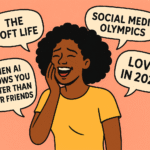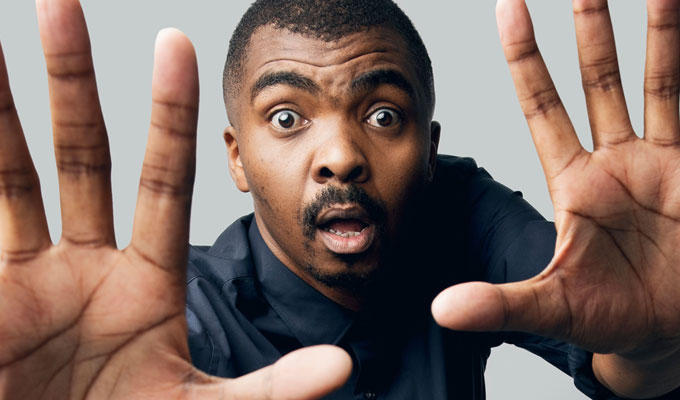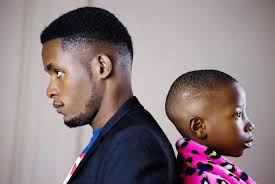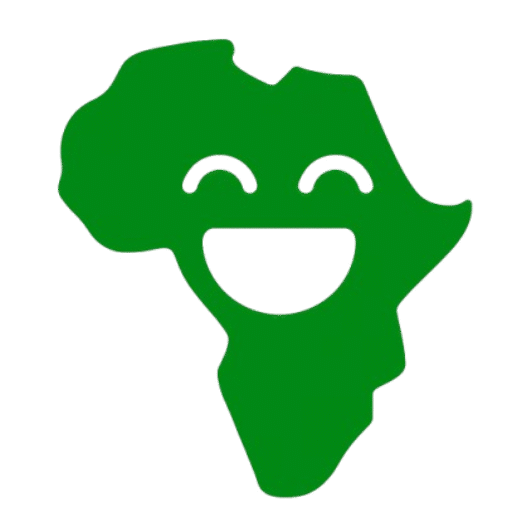Comedy in Africa is often viewed as a mere form of entertainment—light-hearted moments that give people a break from their daily stresses. However, this perception only scratches the surface. Across the continent, comedy has emerged as a significant social force, transcending entertainment to become a vehicle for social change, political discourse, and cultural evolution. In a continent with a rich oral tradition and a history of resilience, African comedy has evolved into a platform for tackling serious issues, voicing societal frustrations, and fostering empathy.
- 1. Comedy as a Catalyst for Political Discourse
- 2. Comedy as a Medium for Social Change and Advocacy
- 3. Comedy as a Tool for Mental Health Awareness
- 4. Comedy as a Vehicle for Cultural Identity and Pride
- 5. Comedy as a Coping Mechanism for Resilience
- 6. Comedy’s Role in Promoting Empathy and Understanding
- Comedy’s Lasting Social Impact in Africa
From political satire to breaking taboos around mental health, comedy in Africa plays a critical role in shaping conversations that drive progress. The social impact of comedy in Africa is undeniable, and it extends far beyond just laughs.
1. Comedy as a Catalyst for Political Discourse
In many African countries, where political expression can be met with resistance, comedy provides a safer platform for discussing issues of governance, corruption, and societal challenges. Comedians often use humor and satire to critique governments, challenge political leaders, and highlight injustices that may be too dangerous or controversial to tackle through traditional media.
One notable example is Trevor Noah, whose global platform as the host of The Daily Show has allowed him to address political issues affecting South Africa, the continent, and the world. With sharp wit and humor, Noah addresses serious political issues, such as apartheid’s legacy, racial inequality, and corruption in African governments, without compromising the power of his message.
Similarly, Basketmouth from Nigeria and Ali Baba are well-known for using humor to mock politicians and expose the dysfunction within the government. Through their comedic acts, they effectively highlight the frustrations and disillusionment of their audiences, offering both catharsis and commentary on the state of the nation.
Comedy, in this sense, has become a platform for holding governments accountable, providing an avenue for public discourse that would otherwise be restricted in some parts of Africa.
2. Comedy as a Medium for Social Change and Advocacy
African comedians have taken on the mantle of social advocates, using humor to raise awareness of social issues such as poverty, gender inequality, and health crises. Comedy often serves as an approachable vehicle for addressing sensitive topics that might be deemed too controversial or uncomfortable in everyday discussions. By introducing humor into these conversations, comedians make it easier for their audiences to engage with and reflect on important social issues.
Comedians like Loyiso Gola and Tumi Morake from South Africa use their comedy to challenge societal norms around gender and empower women. Their performances often shine a light on the discrimination women face in Africa, while providing a humorous take on topics like the traditional roles of women, domestic violence, and the gender wage gap. Through comedy, they create space for critical conversations that aim to shift public opinion on these deeply ingrained issues.
In Nigeria, comedians like Bovi and Gbenga Adeyinka also use humor to comment on societal ills, such as the widespread corruption, poor healthcare, and inadequate infrastructure that affect millions of people. These comedians have used their art to create awareness, stimulate social dialogue, and drive change by engaging their audiences in a manner that is both entertaining and educational.
3. Comedy as a Tool for Mental Health Awareness
Mental health, particularly in Africa, has long been a taboo subject. However, in recent years, comedians have used humor to challenge the stigma surrounding mental health issues. Comedy has emerged as an effective tool for discussing topics like depression, anxiety, and the psychological effects of living in challenging socio-economic environments.
In his stand-up specials, Trevor Noah has addressed his personal struggles with mental health, particularly the trauma he experienced growing up under apartheid. By sharing his experiences with mental health through comedy, he has provided a relatable narrative for others who may be experiencing similar struggles. His open discussion of anxiety and trauma has not only helped normalize the conversation around mental health in Africa but has also encouraged others to seek help.
Similarly, Nigerian comedian Kenny Blaq uses humor to discuss the pressures of living in an economically unstable country, addressing the mental toll that these circumstances can take on individuals. By making these topics accessible and engaging, African comedians are shifting public perception and promoting more open conversations about mental health.
4. Comedy as a Vehicle for Cultural Identity and Pride
Comedy in Africa also plays a vital role in promoting cultural identity and national pride. African comedians often use humor to reflect on their culture, traditions, and values, celebrating the richness of African heritage while addressing the complexities of modern life. Through their comedy, they provide a mirror to society, showing both the beauty and the challenges of African communities.
Comedians such as Ali Baba, Basketmouth, and Bovi are known for incorporating local languages, customs, and traditions into their routines, making their comedy resonate deeply with local audiences. This cultural connection is not only essential for fostering a sense of community but also helps preserve traditional African storytelling methods that have been passed down for generations.
For instance, Nigerian comedians like Mark Angel and Emmanuella use humor to depict everyday Nigerian life, often highlighting the unique experiences and perspectives of ordinary people. This makes their comedy more relatable and helps audiences feel a deeper connection to their shared cultural identity.
5. Comedy as a Coping Mechanism for Resilience
Humor has long been a coping mechanism for African communities that have endured hardships such as poverty, conflict, and political instability. In countries where access to mental health care and social services is limited, comedy often serves as a way for individuals to process their pain and cope with adversity. It provides a much-needed escape from the harsh realities of life, offering relief and a sense of hope.
In Nigeria, comedians like Kenny Blaq and Funke Akindele use their comedy to address the everyday struggles of Nigerians, making light of the challenges they face while offering a sense of solidarity and collective resilience. Comedy provides not just laughter but a shared space where people can laugh at life’s difficulties and find strength in their common experiences.
By using humor to navigate through hardship, African comedy serves as a reminder that even in the face of adversity, laughter can be a powerful source of healing and solidarity.
6. Comedy’s Role in Promoting Empathy and Understanding
Through humor, African comedians also foster empathy and understanding. Their jokes often touch on the shared human experiences that transcend national and cultural boundaries, bringing people together in ways that other forms of discourse might not. Comedy allows audiences to see the world through different perspectives, offering insights into lives, struggles, and experiences that they may not have otherwise encountered.
Thuli Thabethe, for example, uses her comedy to address the emotional labor and challenges women face in South Africa. Through her routines, she invites her audience to empathize with women’s daily experiences, whether it’s dealing with family expectations or the challenges of balancing work and home life. Comedy has the power to expose inequalities and humanize complex issues, making it easier for audiences to relate to people they might not otherwise understand.
Comedy’s Lasting Social Impact in Africa
While comedy in Africa is undeniably entertaining, it is much more than just laughs. It is a vital social tool for political critique, cultural reflection, mental health awareness, and social advocacy. African comedians have become powerful agents of change, using their platforms to engage with critical issues affecting the continent. As comedy continues to evolve and gain traction in both local and global arenas, its social impact will only grow, serving as a catalyst for transformation and progress.
By highlighting social issues, promoting cultural pride, and advocating for political and social change, African comedians are shaping the narrative of the continent. Through humor, they are helping to build a more open, empathetic, and progressive Africa—one laugh at a time.
Call to Action:
If you haven’t already, make sure to check out the work of African comedians—whether through live performances, social media, or their stand-up specials. Embrace the power of laughter to bring change, raise awareness, and spark important conversations in your community. Let’s continue supporting these artists as they use their craft to shape the future of Africa.




















